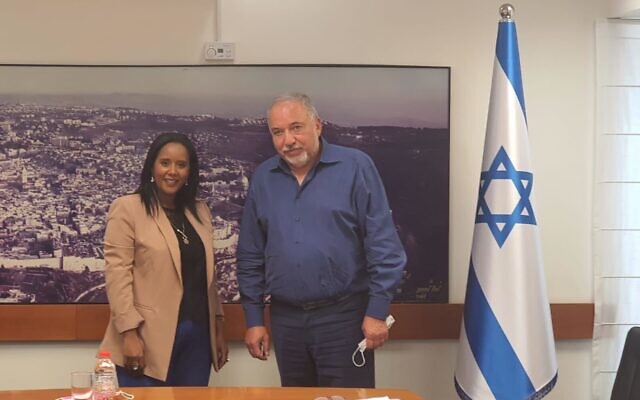The government on Sunday approved a NIS 90 million (over $25 million) budget for absorbing Russian Jewish immigrants arriving in Israel, amid Russia’s ongoing invasion of Ukraine.
The approved funds will go toward providing additional housing solutions for immigrants, employment assimilation, education, health services and other basic requirements to aid those who arrive in haste and with little to no preparation.
Israeli officials have also indicated their intention to bolster the number of flights between Moscow and Tel Aviv, as well as to find ways to facilitate the transfer of assets out of Russia.
According to data from Ministry of Aliyah and Immigration Absorption, some 24,000 Jewish immigrants have moved to Israel since Russia launched the war in Ukraine on February 24, the most significant wave of immigration from there since hundreds of thousands of people moved to the Jewish state as the Soviet Union collapsed over 30 years ago.
The ministry believes many additional immigrants are due to arrive in the coming months, partly due to Russia’s “partial mobilization” of reservists as its military faces setback in Ukraine.
Get The Times of Israel's Daily Edition by email and never miss our top stories
The new funds are part of an initiative led by Immigration and Absorption Minister Pnina Tamano-Shata and Finance Minister Avigdor Liberman to prepare for the immediate arrival of immigrants from Russia.

Illustrative photo: Russian immigrants make their way off the plane that brought them to Israel in 1990 (Moshe Shai/Flash90)
“The State of Israel is a safe haven for every Jew in the world and their migration to Israel, no matter the cause, lifts the spirit,” Tamano-Shata said in a statement.
“The Immigration and Absorption Ministry led by me will ensure that all Russian immigrants arriving in Israel these days under challenging circumstances will receive the holistic care they need to fully integrate into the Israeli society as quickly as possible,” she added.
Liberman echoed Tamano-Shata, saying, “The Finance Ministry will spare no expense allowing Jews and those eligible by the Law of Return to make aliyah” — the Hebrew word for immigration.
He added that “aliyah is a strategic asset for the State of Israel and the greatest growth engine we’ve had since the state was established.”

Immigration and Absorption Minister Pnina Tamano-Shata, left, and Finance Minister Avigdor Liberman, right, after approving a NIS 90 million budget that will go toward absorbing immigrants from Russia, October 2, 2022. (Immigration and Absorption and Finance Ministries)
The preparations for further immigration from Russia come as openly anti-Jewish rhetoric is entering the country’s mainstream media while Russia’s war effort in Ukraine founders, with a popular talk show host naming Jews, on air, as being insufficiently patriotic and a think tank accusing a prominent Jewish philosopher of siding with Ukraine out of greed.
Nearly 200,000 Jews are estimated to now live in Russia, though roughly three times as many are eligible for Israeli citizenship, having at least one Jewish grandparent.
In a Rosh Hashanah greeting issued by Russian President Vladimir Putin last week, the president called on Russian Jews to make a “hefty contribution” to the country’s multiethnic identity. When he rose to power 22 years ago, Putin cracked down on the open antisemitism that nearly all of his predecessors had either encouraged, tolerated or ignored.
Meanwhile, in a sign of the Kremlin’s desire to tighten the screws on Jewish immigration, Russia’s Justice Ministry filed a petition to a Moscow court in July to liquidate the offices of the Jewish Agency for Israel — the semi-governmental organization which encourages and facilitates Jewish immigration to Israel.
Though the trial officially opened in July, it has not progressed significantly over the past two months, with all of the hearings ending in postponements. The Moscow court will next hear the case on October 19.
Judah Ari Gross and The Jewish Telegraphic Agency contributed to this report.


